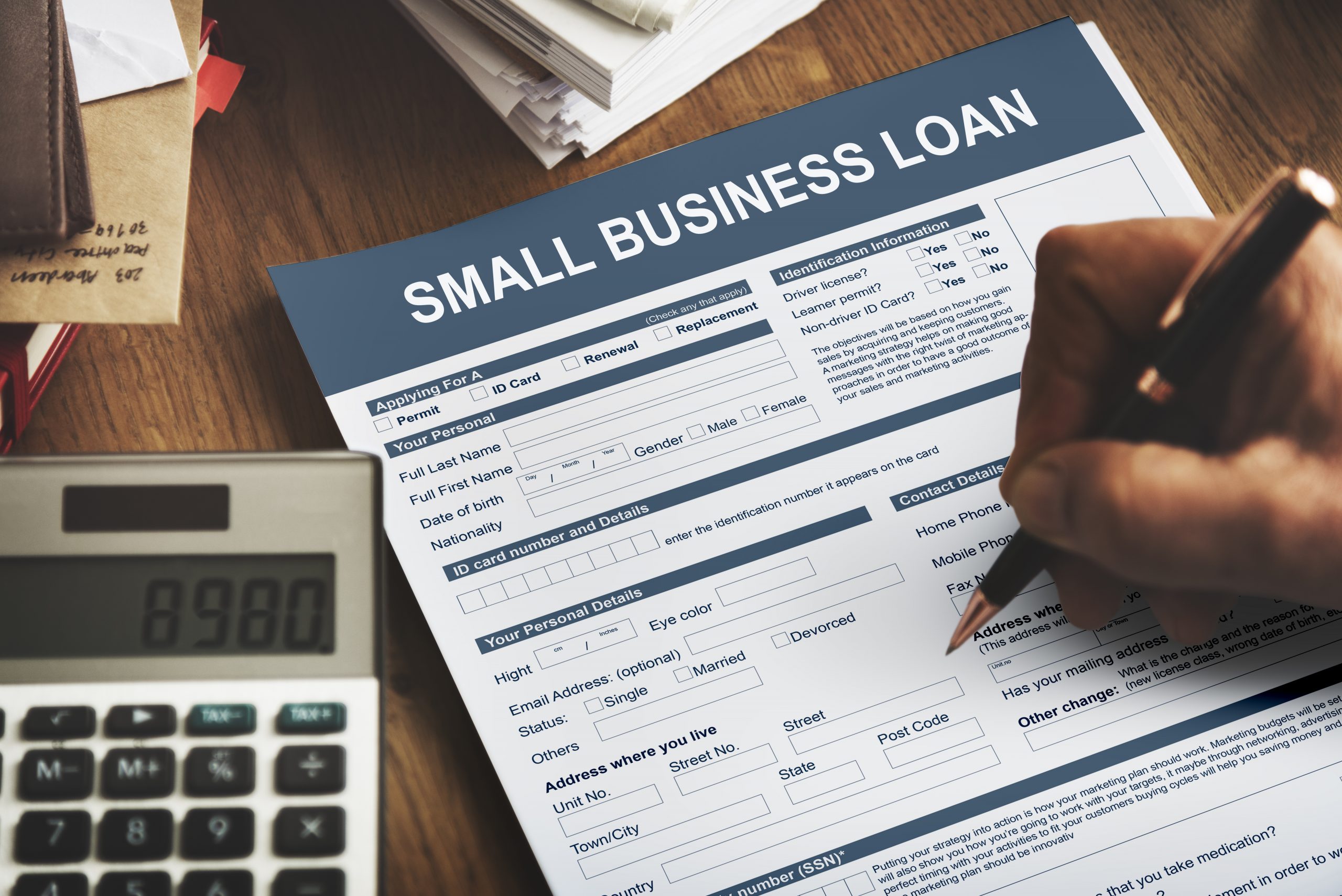At some point in the life of your business, you’re going to need more money than you have on hand. It may be to cover payroll during the busy season, or a capital investment in newer technology that give you the edge over your competition.
When applying for a small business loan, whether it’s for a small amount to tide you over during a tight season, or a larger loan that will help you grow your business, there is a lot of information that your lender will need, whether you’re borrowing from a bank or from an alternative lender. Here’s a comprehensive list of twenty-one things you’re going to need to bring with you when applying for a small business loan.
Loan Amount
How much do you need? That’s a very good question (and a seemingly obvious one), and one of the first ones a bank of lending institution is going to ask you when you apply for a small business loan. This isn’t a number that you simply make up; you’re going to have to provide details to the banks you approach when you decide to apply for a loan. In some cases, you may need to prove why you need a specific loan amount based on existing debts, or you may be asked to show a price list for the expenses you’re looking to take on.
Loan Type
As discussed in previous articles, there are numerous ways that a bank can give your small business a loan. You will need to review the different types of loan offerings that are relevant for your business and determine which one is the best option. Whether it’s an unsecured small business loan, a secured small business loan, a small business line of credit, invoice factoring or a business credit card, knowing what to ask for will show the loan officer that you’ve done your homework and will make sure that you get the best loan possible.
Loan Purpose
You need to be up-front and honest with your lender regarding the purpose of the loan. They aren’t going to simply give you a loan because you need “stuff and things.” Identifying the purpose of the loan will also help you focus your attention on the essentials, giving you a more accurate number to present to the loan officer when you apply for your loan.
Make a very detailed accounting, and if you can’t give precise numbers, estimate. Factor your estimates conservatively, meaning on the high side, so you don’t wind up with less than you need and create a financial crisis.
Business Credit Score
If you have ever applied for a personal or a small business credit card, chances are you’ve already seen your credit score. In short, your business credit score is a number determined by several factors that help banks and other lending institutions determine whether or not your company is a credit risk. Having a recent credit report will give you an idea of how banks will look at you and your business, as well as give you an opportunity to correct any issues on your reports that might affect your score negatively.
Go on one of the big three credit reporting agency web sites and request a credit score report for your company. Go over the report and try to resolve any outstanding issues that might still be on your credit report, so when you approach lending institutions, you will have a better chance of securing your small business loan.
Personal Credit Score
Banks will want to see your personal credit score and credit report as well. They want to see that they’re considering lending money to someone who is financially responsible in their personal life as well as in business. Like your business credit report, get a copy of your personal credit report and work to resolve any issues that might be negatively affecting your credit score, so you can show the bank that you are a good credit risk.
Business Plan
Having a business plan for your small business is like having a roadmap of where you’re going with your business and how you plan on getting there. And the lending institutions you visit to apply for your small business loan are going to want to see that plan.
Have a copy of your business plan ready to go, and make sure it’s up to date, accounting for any changes in the plan you’ve had to make in order to accommodate real life getting in the way, for better or worse. Go over the numbers in your business plan a few times so you’ll have them at the ready when the loan officer starts asking questions.
Business Permits
If your business operates legally, chances are you have had to apply for, and receive, permits for your business. Make sure your permits are all current, and that you have copies of all the permits your business requires to operate in your city and state. If any of your employees require certifications or permits in order to work in your industry, make sure those are up to date as well. It’s a good idea to call any regulatory agencies that you need to report to and make sure that your business is current with any regulatory obligations you may have.
Balance Sheets
Small businesses use balance sheets to get periodical snapshots on how the business is doing financially. Have a record of your company’s balance sheets available so you can show the lending institutions how your business has been managing. Go back as far as you can and make notes on anything that might raise concern when they are reviewed, such as a slow month or seasonal profits.
Bank Statements
You may have kept painstakingly accurate balance sheets and accounting statements in your accounting software, but the banks where you want to apply for a small business loan are going to want to independently verify that your bank statements reflect what your other financial paperwork says. The more bank statements you can provide, the better the loan officer can determine whether your business is going to be a good candidate for a small business loan.
Tax Returns
As part of your financial footprint, your tax returns are going to be a vital element in helping determine whether or not your business is successful enough to be given a loan. Bank officers will see that you’ve been diligent in submitting your business’ taxes, and whether or not your business demonstrates profitability.
Lease or Deed
Businesses that are well-established tend not to move around so much. Have a copy of all of your leases or property deeds available for review, so the lending institution can see that your business is going to be around for years to come. If you are trying to secure a small business loan for a newer, larger, or better property, bring a copy of the potential lease so the bank can evaluate the viability for your new location.
Business Age
The longer you’ve been in business, the more comfortable banks will feel about lending you money. Obviously, this is counterintuitive, since it’s usually younger businesses who tend to need small business loans to help them expand to the next level.
If you’re a relatively new business, you might find banks to be somewhat hesitant to lend you money at a more favorable rate. Remember though, this is a negotiation; the bank is going to be making money on the interest you pay on the small business loan. You might have to look a little harder, but eventually you’ll find the best loan terms that your business can manage.
Accounts Receivable Statements
Money is constantly moving in and out of your business. Your balance sheets might show money that hasn’t been paid yet for products or services your company has already provided, but it’s a good idea to have a folder ready with copies of any outstanding invoices you’re waiting on for payment.
Accounts Payable Statements
The same way banks want to see any money your company hasn’t collected yet, they want to see any bills that you haven’t paid yet, either. Your accounts payable statements will show the lending institutions that you can manage your expenses responsibly, and that you can pay your bills on time.
Collateral
Your business may have assets that you can leverage as collateral for your loan. These might include vehicles or properties that your business owns that you can offer to the bank as security for your small business loan. Not only will this show the bank that you’re willing to shoulder some of the risk in order to secure the loan, but it will also help you negotiate for better terms and a better interest rate for your loan.
Debt Schedule
If your small business has outstanding debt from a mortgage, previous loans or investments, showing the lending institutions or banks your debt repayment schedule will give them an idea of what your fiscal responsibilities are, and how much a small business loan will add to your business’ debt load.
Revenue Forecast
After being in business for a few years, any small business owner should be able to forecast how well they expect their business to perform, based on past performance. While both you and the banks know that it’s only speculation, a decent revenue forecast for your small business can help persuade the bank that your business will be financially viable for the foreseeable future.
Payroll Records
Payroll is probably the biggest expense for your small business. Your payroll records will show the bank that you are managing your human resources properly, and that you are up-to-date with your payroll taxes and other obligations, such as pensions.
Personal Assets Statements
One of the more uncomfortable things the bank may ask for are statements of your personal assets. This is to determine whether or not you have personal assets that you can provide as collateral to secure the loan, in addition to your business assets. Banks will be more willing to lend you money if they know you are sharing the risk.
Business Continuity Plan
If your business is in a high-risk location that may be subject to natural disasters such as earthquakes, tornadoes, or flooding, the banks will want to see your plan for how you will maintain your business should disaster strike. Alternate work locations, offsite data backups, and other plans for maintaining business continuity will show the lending institutions that if the worst should happen, you will be able to minimize the impact it will have on your business, and that you’ll be able to continue to provide your customers with the services and products that your company provides.
Business Insurance Information
Your business probably has insurance to protect against damage, theft, fire, and other possible calamities that any business might face. Have copies of your insurance policies for all of your business assets, properties, as well as any insurance policies that protect your business from damages or loss.
Banks make money by providing loans to small business and receiving the interest on those loans. However, they have to be responsible about who they provide with those loans. While it might seem bordering on crazy, the information they will ask you to provide will help them get a clear picture of your business from the perspective of potential risk. If your business has been fiscally responsible and careful, following a well thought out plan, and making sure you’ve met all of your financial obligations, you will be considered favorably as a low risk, and be able to secure a loan to help you reach the next stage of growth for your small business.





